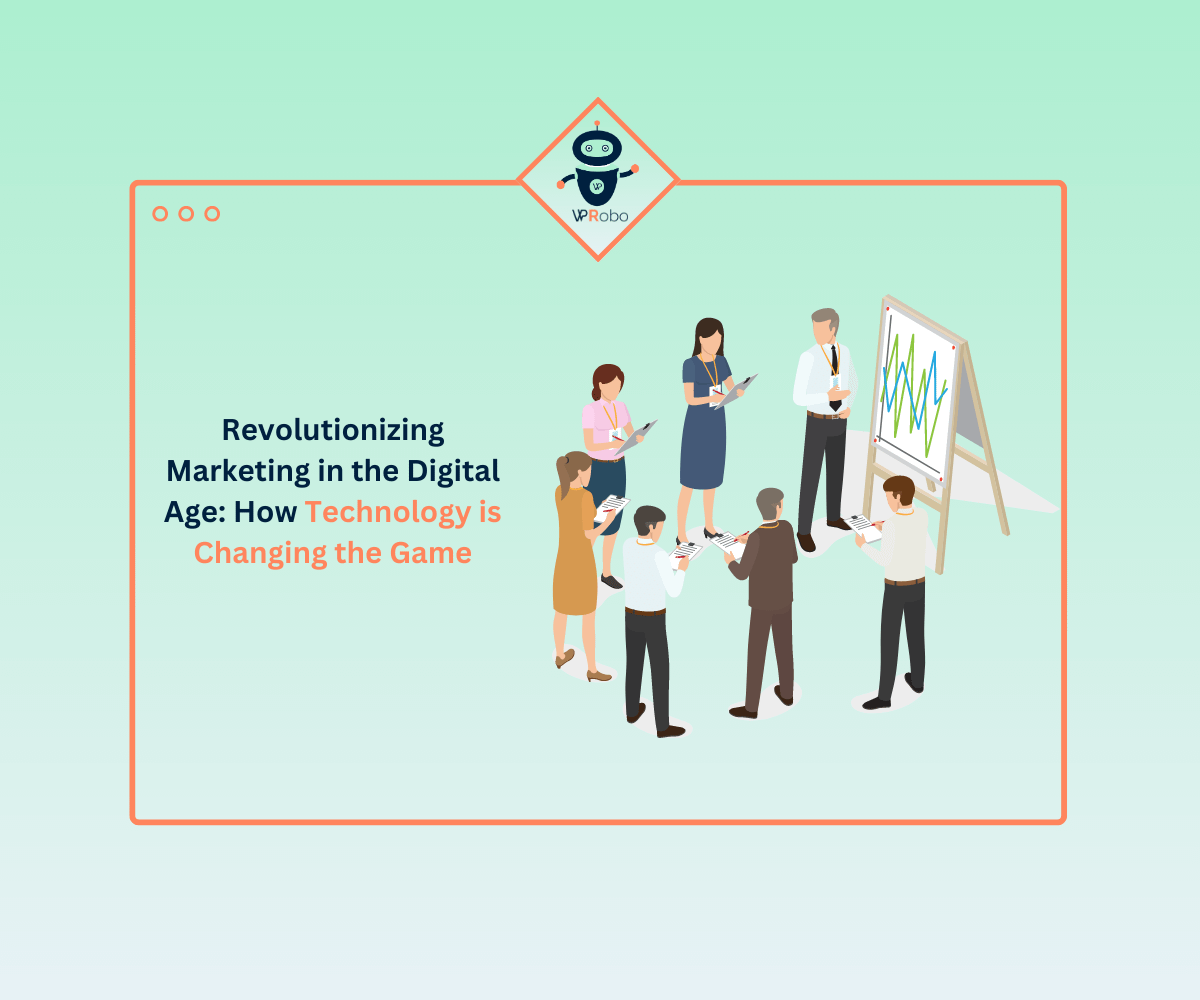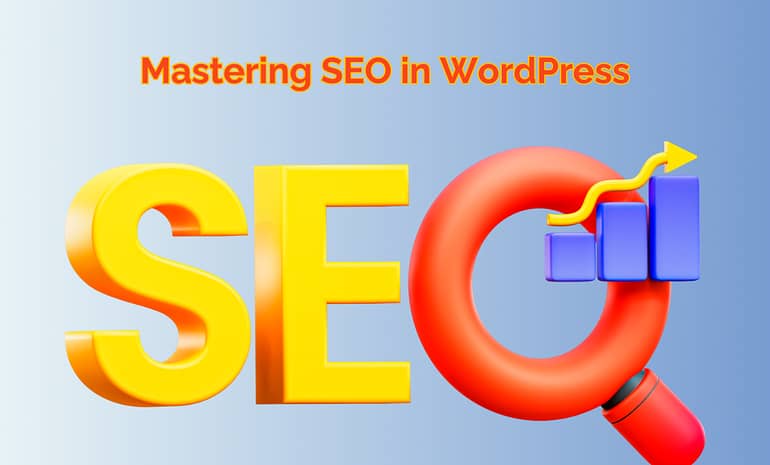“Revolutionizing Marketing in the Digital Age: How Technology is Changing the Game”
Introduction:
Marketing has always been essential to any business, serving as a bridge between companies and their target customers. Over the years, marketing techniques have evolved significantly, with the advent of technology playing a pivotal role in shaping the landscape. Technology is revolutionizing marketing practices in today’s digital age, providing businesses with new tools and platforms to reach their audience more effectively.

This article explores how technology is changing the game of marketing, focusing on key areas such as Social Media Marketing, Search Engine Optimization, Content Marketing, Influencer Marketing, Data Analytics, Augmented Reality (AR), and Virtual Reality (VR), Chatbots and AI-Powered Customer Service, Mobile Marketing, Programmatic Advertising, and Customer Relationship Management (CRM) Systems.
- Customer Relationship Management (CRM) Systems:
CRM systems have evolved with technology to provide comprehensive customer data management and personalized marketing capabilities. These systems collect and store customer information, including demographics, purchase history, and interactions across various touchpoints.
Marketers can leverage CRM platforms to segment customers, create targeted marketing campaigns, and deliver personalized experiences. Advanced CRM systems integrate with other marketing technologies, such as email marketing software and social media management tools, to streamline marketing operations and improve customer engagement.
- Social Media Marketing:
Social media platforms have transformed the way businesses connect with their customers. With billions of active users on platforms like Facebook, Instagram, Twitter, and LinkedIn, social media marketing has become integral to any comprehensive marketing strategy. Businesses can build brand awareness, engage with customers, and drive website traffic through these platforms.
Additionally, social media advertising allows for precise targeting based on demographics, interests, and online behaviors, enabling businesses to reach their desired audience more effectively.
- Search Engine Optimization:
Search Engine Optimization (SEO) improves a website’s visibility in search engine results. With the majority of online experiences starting with a search engine query, ranking high in search results significantly impacts a business’s visibility and organic traffic. Technology has revolutionized SEO by introducing advanced algorithms and analytics tools that enable marketers to optimize their websites effectively.
Techniques such as keyword research, on-page optimization, backlink building, and user experience optimization have become more sophisticated and data-driven, leading to better search engine rankings and increased website traffic.
- Content Marketing:
Content marketing involves creating and distributing valuable, relevant, consistent content to attract and retain a target audience. Technology has transformed content marketing by providing businesses with various platforms and tools to create, distribute, and measure the impact of their content.
Content management systems (CMS), social media scheduling tools, and analytics platforms enable marketers to streamline content creation and distribution processes. Emerging technologies like artificial intelligence and machine learning help marketers understand consumer preferences and create personalized, engaging content experiences.
- Influencer Marketing:
Influencer marketing leverages the reach and influence of individuals or groups with a significant following on social media platforms. Technology has revolutionized influencer marketing by making it easier for businesses to identify and collaborate with relevant influencers.
Online platforms and tools provide comprehensive databases of influencers, allowing marketers to search based on niche, demographics, and engagement metrics. Furthermore, technology has enabled the measurement of influencer marketing campaigns, providing insights into reach, engagement, and return on investment (ROI).
- Data Analytics:
Data analytics is a powerful tool that helps businesses make informed decisions and optimize their marketing strategies. Technology has transformed data analytics by enabling vast data collection, storage, and analysis. Advanced analytics tools and platforms allow businesses to gain valuable insights into consumer behavior, preferences, and trends. By leveraging data analytics, marketers can personalize their marketing campaigns, measure the effectiveness of their strategies, and make data-driven decisions to drive better results.
- Augmented Reality (AR) and Virtual Reality (VR):
AR and VR technologies have opened up new possibilities for immersive and interactive marketing experiences. Brands can use AR and VR to create virtual showrooms, product demonstrations, or even virtual try-on experiences. These technologies allow customers to engage with products or services more interactively and engagingly, enhancing their overall shopping experience. AR and VR also offer storytelling and brand storytelling opportunities, enabling marketers to create memorable and impactful experiences that resonate with their audience.
- Chatbots and AI-Powered Customer Service:
Chatbots, powered by artificial intelligence (AI), have become increasingly prevalent in marketing and customer service. These intelligent chat agents can interact with customers in real-time, answering their queries, providing recommendations, and even processing transactions. Chatbots offer businesses a cost-effective and efficient way to provide 24/7 customer support, improve response times, and enhance the overall customer experience.

- Mobile Marketing:
The proliferation of smartphones and mobile devices has transformed how people consume content and interact with brands. Mobile marketing strategies include mobile apps, mobile-optimized websites, location-based marketing, and mobile advertising. Marketers can leverage mobile technologies to deliver personalized and location-specific offers, push notifications, and mobile ads that target users on the go. Additionally, near-field communication (NFC) and QR codes enable seamless mobile interactions, such as mobile payments or instant access to product information.
You’ve come to the right place if you’re trying to use digital marketing to expand your company, boost website traffic, and improve your online exposure. WPRobo is here to assist you with all your problems; our team of seasoned experts combines industry knowledge with cutting-edge technology to deliver customized digital marketing solutions tailored to your specific needs. Whether you’re just starting or looking to take your online presence to new heights, we have the tools, expertise, and passion to help you succeed. So, if you’re ready to take your digital marketing efforts to the next level, don’t hesitate to contact us.
Conclusion:
In conclusion, technology revolutionizes marketing practices by providing new tools, platforms, and strategies that enable businesses to reach and engage with their target audience more effectively. From automation and AI-powered solutions to immersive experiences and data-driven insights, marketers must embrace these technological advancements to stay competitive in the digital age. By leveraging technology, businesses can optimize their marketing efforts, drive better results, and deliver personalized experiences that resonate with their customers.



